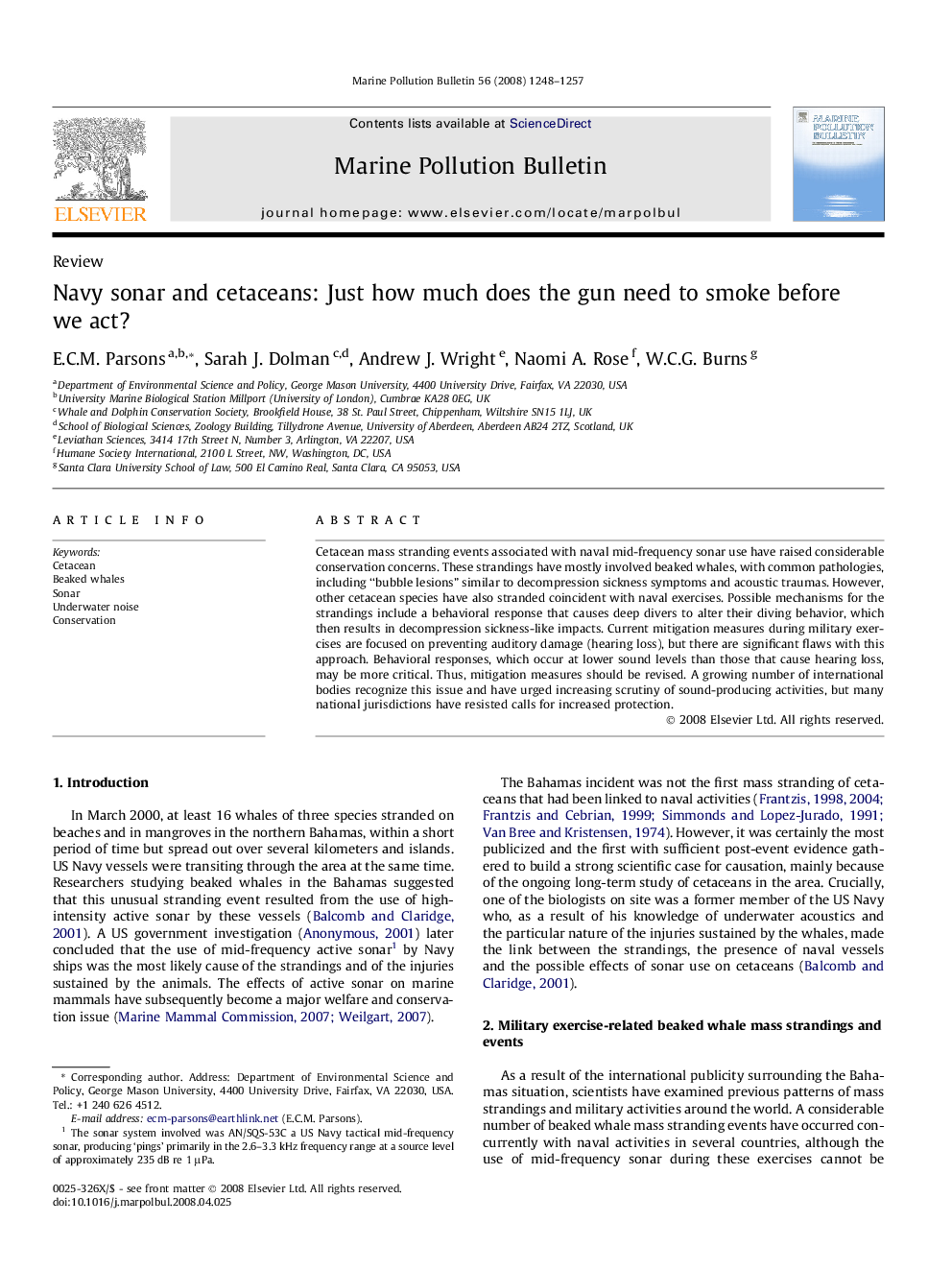| Article ID | Journal | Published Year | Pages | File Type |
|---|---|---|---|---|
| 4477490 | Marine Pollution Bulletin | 2008 | 10 Pages |
Cetacean mass stranding events associated with naval mid-frequency sonar use have raised considerable conservation concerns. These strandings have mostly involved beaked whales, with common pathologies, including “bubble lesions” similar to decompression sickness symptoms and acoustic traumas. However, other cetacean species have also stranded coincident with naval exercises. Possible mechanisms for the strandings include a behavioral response that causes deep divers to alter their diving behavior, which then results in decompression sickness-like impacts. Current mitigation measures during military exercises are focused on preventing auditory damage (hearing loss), but there are significant flaws with this approach. Behavioral responses, which occur at lower sound levels than those that cause hearing loss, may be more critical. Thus, mitigation measures should be revised. A growing number of international bodies recognize this issue and have urged increasing scrutiny of sound-producing activities, but many national jurisdictions have resisted calls for increased protection.
